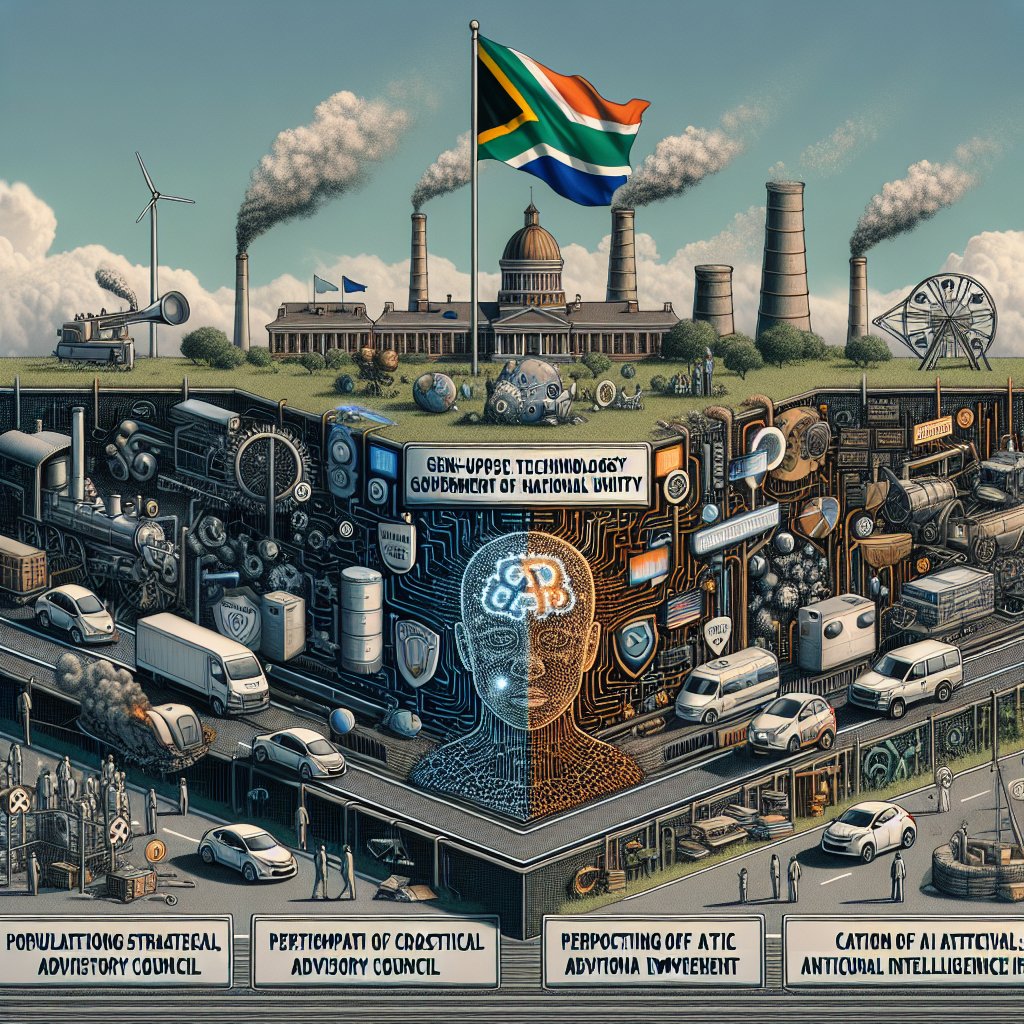Image created by AI
South Africa's New Window for AI Integration in Government Policy
As the Government of National Unity (GNU) in South Africa anchors itself post-election, it confronts a myriad of structural impediments to growth, chief among them the integration and prioritization of Artificial Intelligence (AI) at all levels of government. The transformative power of AI as a general-purpose technology (GPT) parallels the historical significance of the steam engine and the internet, signaling its vast influence across multiple sectors from education and health to national security and employment.
Understanding the potential of AI is critical. It can significantly boost productivity and reshape public service delivery while potentially causing major disruptions in labor and exacerbating inequality. South Africa's government needs to translate burgeoning private sector and public engagement with AI into concrete policymaking, avoiding the superficial engagement often seen so far.
Despite the country's AI strategy's fledgling steps, notably a discussion document released by the Department of Communications and Digital Technology (DCDT), the country is not without direction but rather needs a more strategic, focused, and actionable plan. The DCDT has recognized this, promising a participative approach through an AI Expert Advisory Council and operationalization by the Artificial Intelligence Institute of South Africa (AIISA). Yet, as the AIISA remains silent on updates and progress, the urgency for a robust AI policy grows.
Solly Malatsi, the DCDT's new minister, has an opportunity to spearhead this imperative work, ensuring that AI strategy formulation is not siloed within a single department but infused across the entire governmental structure. South Africa stands at a crossroads, with the GNU providing a platform for innovative, cross-functional policy that could position the nation at the forefront of AI utilization, negating years of stagnation and aligning with the broader goals of inclusive growth, poverty reduction, and a capable, ethical state.










